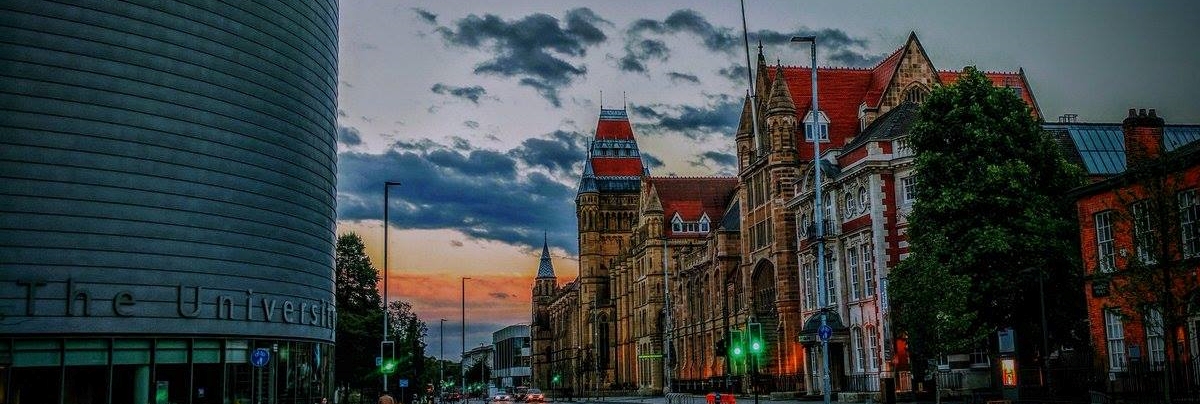
Animal Politics: Utopian and Dystopian Visions of Multispecies Society
Angie Pepper, Eva Meijer and Josh Milburn
University Place 5.204 (Hybrid)
When animal ethicists dare to dream, they imagine worlds in which animals are protected from harm and welcomed as members of our societies. They can, however, be forgiven gloomy pessimism when they look at today’s world. Globally, more animals are kept in factory farms than at any other point in history. The last vestiges of untouched ‘nature’, if any exist at all, are tiny. And catastrophic climate change threatens all of us, but not least animals.
Animal ethicists – especially when informed by political theory – have done valuable work theorising multispecies utopias. But they have also done important work documenting today’s multispecies dystopias, exploring how we can move away from them. Bringing together political theorists, animal ethicists, critical animal studies scholars, and those in cognate disciplines, we propose to put this work in conversation: to place utopias next to dystopias, to put ideal theory in conversation with non-ideal theory.
Convenors: Angie Pepper (University of Roehampton); Eva Meijer (University of Amsterdam); Josh Milburn (Loughborough University).
|
Wednesday 7th September |
|
|
11:00-12:30 |
Registration |
|
12:30-13:30 |
Lunch |
|
13:30-14:00 |
Welcome Speech |
|
14:00-16:00 |
Session 1 Steve Cooke (University of Leicester): Finding Wonder in Nonhuman Lives Liza Bauer (Justus Liebig University Giessen): Sharing Planets, Sharing Lives: Practicing Relationships with “Livestock” Animal Figures in Speculative Fiction to Deindustrialize the Imagination |
|
16:00-16:30 |
Tea and Coffee Break (optional) |
|
16:30-17:30 |
Session 1 (continued) Eva Meijer (University of Amsterdam): Political Conversations with Mice |
|
17:45-19:00 |
Wine Reception |
|
19:30 |
Conference Dinner |
|
Thursday 8th September |
|
|
9:30-11:30 |
Session 2 Josh Milburn (Loughborough University): Animals, State, and Utopia Angie Pepper (University of Roehampton) and Rich Healey (UCL): Against Interspecies Politics |
|
11:30-12:00 |
Tea and Coffee Break (optional) |
|
12:00-13:00 |
Session 2 (continued) Alasdair Cochrane: Are Multi-Species Political Communities Fantastical? |
|
13:00-14:00 |
Lunch |
|
14:00-16:00 |
Session 3 Anat Pick (University of Helsinki and Queen Mary University of London): On Looking/ Eating Well: Kelly Reichardt’s First Cow (2019) and Andrea Arnold’s Cow (2021) Pattrice Jones (VINE Sanctuary): TBA |
|
16:00-16:30 |
Tea and Coffee Break (optional) |
|
16:30-17:30 |
Session 3 (continued) Paula Arcari (Edge Hill University): ‘They Don’t Have to Do Anything to Have the Right to Survive, to Live’: Heterotopia as Prefigurative Interventions Towards Utopian Hearts and Minds |
|
Friday 9th September |
|
|
9:30-11:30 |
Session 4 Simon Coghlan (University of Melbourne) and Christine Parker (University of Melbourne): Artificial Intelligence and Animal Futures Alejandra Mancilla (University of Oslo): Effective Disoccupation |
|
11:30-12:00 |
Tea and Coffee Break (optional) |
|
12:00-13:00 |
Session 4 (continued) Virginia De Biasio (University of York): An Extension to Natural Resources Justice: The Case of Animals |
|
13:00-14:00 |
Lunch |
|
14:00-16:00 |
Session 5 Billy Godfrey (Loughborough University): Images of Enslaved Anteaters: The Case Against Utopian Thought in Animal Studies Frauke Albersmeier (Heinrich Heine University Dusseldorf): Reconsidering the Circumstances of Interspecies Justice |
|
16:00-16:30 |
Tea and Coffee Break (optional) |
|
16:30-17:30 |
Session 5 (continued) Sue Donaldson (Queen’s University) and Will Kymlicka (Queen’s University): Burdens of Utopia |
|
17:30 |
End of Conference |
